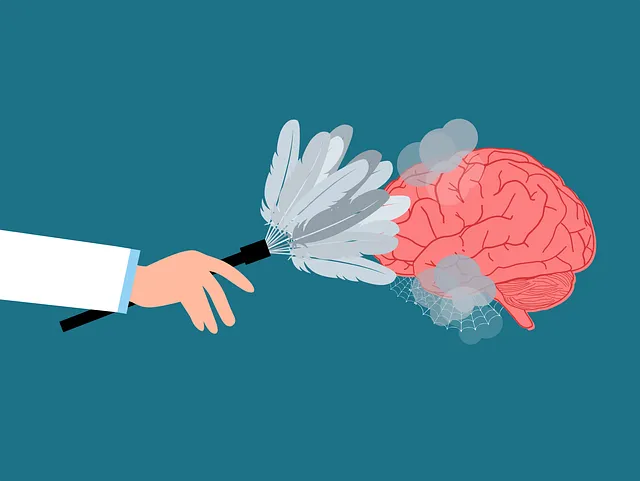Coping skills are essential for mental health and building resilience against life's challenges. The Kaiser Permanente psychiatry phone number in Boulder offers personalized coping strategies, including physical activities, art therapy, journaling, cognitive-behavioral therapies, and mindfulness practices, to enhance well-being. Their expert psychiatrists provide holistic care, teaching tailored coping mechanisms, managing stress, and fostering inner strength, with a focus on cultural sensitivity and long-term mental wellness. By identifying personal coping methods, tracking their effectiveness, and integrating stress reduction practices into daily life, individuals can build resilience and navigate difficult situations more effectively.
Coping skills are essential for navigating life’s challenges and maintaining mental well-being. This article offers a comprehensive guide to developing effective coping strategies. We explore the foundational understanding of coping skills, highlighting their role in psychiatric care through examples from Kaiser Permanente Boulder. Learn how accessing professional guidance, identifying personal mechanisms, and integrating coping techniques into daily routines foster resilience. For those seeking support, the Kaiser Permanente psychiatry phone number in Boulder is a valuable resource.
- Understanding Coping Skills: An Overview for Mental Well-being
- The Role of Psychiatry in Teaching and Supporting Coping Strategies
- Kaiser Permanente Boulder: A Resource for Accessing Professional Guidance
- Identifying Personal Coping Mechanisms: A Step-by-Step Guide
- Integrating Coping Skills into Daily Life for Long-Term Resilience
Understanding Coping Skills: An Overview for Mental Well-being

Coping skills are essential tools for maintaining mental well-being and resilience building. They equip individuals with strategies to navigate life’s challenges, manage stress, and overcome difficult situations. Understanding coping mechanisms is crucial, especially in addressing mental illness stigma reduction efforts. By learning effective techniques, one can enhance their ability to cope with trauma, anxiety, depression, or other mental health concerns.
The journey towards better mental health often begins with identifying personal coping styles. Some individuals find solace in physical activities like exercise or meditation for mood management. Others might prefer creative outlets such as art therapy or journaling. Boulder’s Kaiser Permanente psychiatry phone number can provide valuable resources and guidance for developing a personalized coping strategy. Through professional support, individuals can explore various techniques, including cognitive-behavioural therapies, mindfulness practices, and social connections, to foster resilience and improve overall mental well-being.
The Role of Psychiatry in Teaching and Supporting Coping Strategies

At Kaiser Permanente Psychiatry phone number Boulder, our experts play a pivotal role in empowering individuals to navigate life’s challenges with resilience and effective coping strategies. Beyond prescribing medications, we focus on holistic mental health care that includes teaching valuable coping skills tailored to each patient’s unique needs. Through therapy sessions, our psychiatrists help individuals identify and manage stress, anxiety, and other emotional difficulties, fostering inner strength development.
We understand the importance of cultural sensitivity in mental healthcare practice, ensuring our approach respects diverse backgrounds and perspectives. By incorporating Social Skills Training into our treatment plans, we enable folks to build a support system and enhance their overall well-being. Our goal is not just to treat symptoms but to empower individuals with lasting coping mechanisms that positively impact their daily lives.
Kaiser Permanente Boulder: A Resource for Accessing Professional Guidance

Kaiser Permanente Boulder stands as a beacon of hope and support for those navigating mental health challenges. This healthcare provider offers a comprehensive suite of services, with a particular focus on psychiatry and psychology. Individuals seeking professional guidance can reach out to the dedicated team via the Kaiser Permanente psychiatry phone number Boulder residents have come to rely on.
Through their expert psychiatrists and therapists, Kaiser Permanente provides access to evidence-based treatments and therapeutic approaches designed to foster mental wellness. They understand that stress reduction methods are vital for promoting overall well-being, and thus, they incorporate mind over matter principles into their care plans. This holistic approach ensures patients receive the comprehensive support needed to overcome obstacles and cultivate lasting mental resilience.
Identifying Personal Coping Mechanisms: A Step-by-Step Guide

Identifying your personal coping mechanisms is a powerful step towards enhancing your mental wellness, and resources like the Kaiser Permanente psychiatry phone number Boulder can offer valuable guidance. This process involves introspection and understanding what strategies work best for you in managing stress, anxiety, or challenging situations. Here’s a simple guide to get started:
1. Reflect on Past Experiences: Think about times when you’ve successfully navigated difficult situations. What activities, thoughts, or behaviours helped you feel better? Was it engaging in physical activity, journaling, spending time with friends, or practising mindfulness? Identifying these coping strategies is the first step towards building resilience.
2. Keep a Coping Journal: Start documenting your feelings and the coping mechanisms you use during stressful events. Note down what worked well and what didn’t. This journal can serve as a valuable resource to understand your unique coping patterns and preferences, especially when combined with mental health education programs designed to build resilience.
3. Experiment and Evaluate: Not all coping strategies will be effective for every individual. Experiment with different techniques such as deep breathing exercises, meditation, creative outlets, or engaging in hobbies. Evaluate which methods help you regulate your emotions and maintain a positive mindset. The goal is to develop a toolkit of personal coping mechanisms that can be accessed when needed, contributing to your overall mental wellness.
Integrating Coping Skills into Daily Life for Long-Term Resilience

Integrating coping skills into daily life is a vital step towards building long-term resilience. According to experts at Kaiser Permanente psychiatry phone number Boulder, this process involves consistently practicing stress reduction methods that align with Mind Over Matter principles. By dedicating time each day for mindfulness exercises, such as meditation or deep breathing, individuals can cultivate mental clarity and emotional balance. These practices not only help in managing immediate stressors but also strengthen one’s capacity to cope with future challenges.
Over time, integrating these coping skills becomes a natural part of one’s routine, fostering resilience that can withstand life’s ups and downs. The key is consistency—adopting these methods as lifestyle habits rather than sporadic solutions. Through regular practice, individuals can enhance their ability to navigate difficult situations, improve overall well-being, and ultimately build a more robust mental framework for coping with stress and adversity.
Coping skills development is a powerful tool for maintaining mental well-being. By understanding various strategies, seeking professional guidance from resources like Kaiser Permanente Boulder (available via their psychiatry phone number), and integrating these practices into daily life, individuals can foster resilience and navigate challenges more effectively. The steps outlined in this article provide a solid foundation for enhancing coping abilities, ultimately contributing to improved overall mental health.






